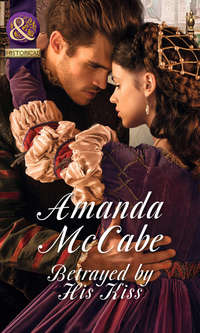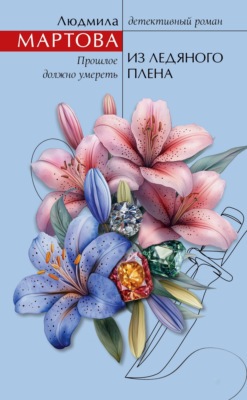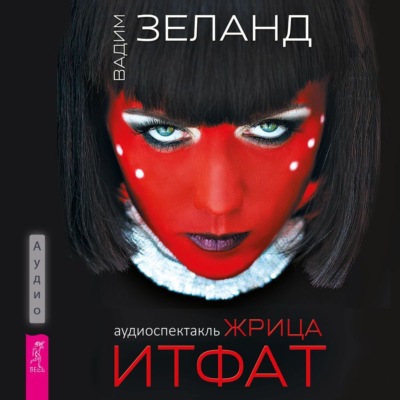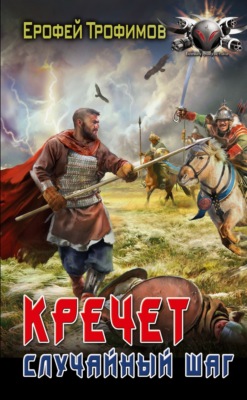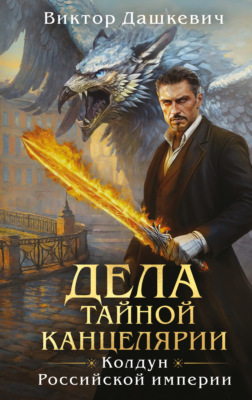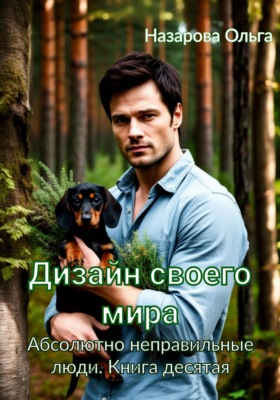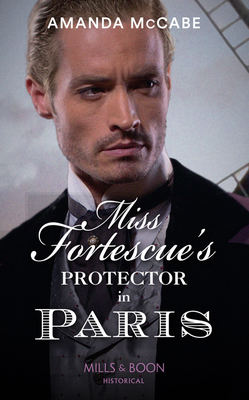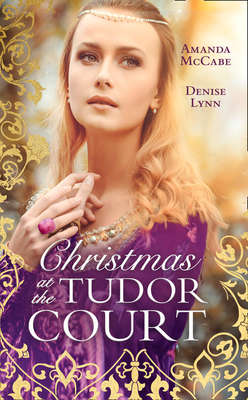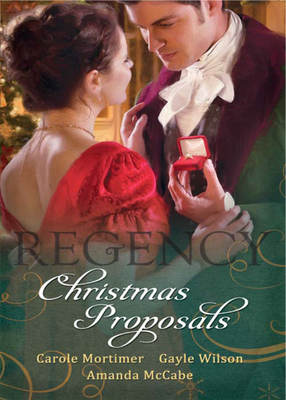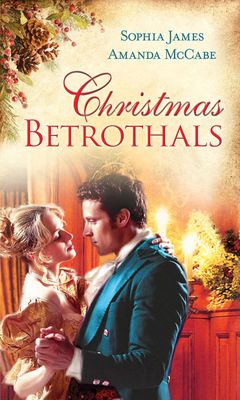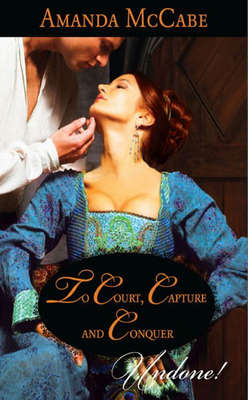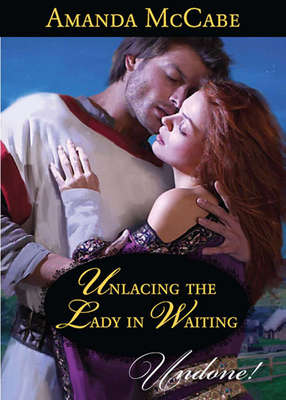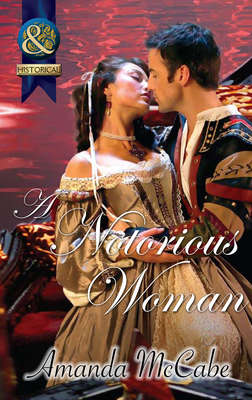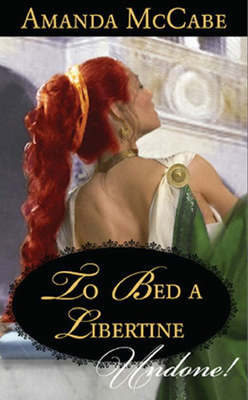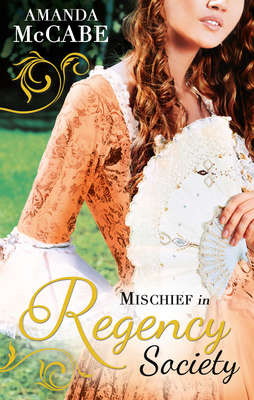Loe raamatut: «Betrayed by His Kiss»
That kiss had been like nothing else she had ever known or could even imagine.
The very ground beneath her feet had swollen like the wave of a flooding river and burst, drowning her, and surely nothing could be the same again. It was as if she'd glimpsed the emotions only evoked by paint or charcoal on canvas.
Yet then he had vanished. Disappeared as if he was one of her dreams—half-hidden, desperately sought, but always elusive.
She closed her eyes for an instant and in that darkness she saw again the way he'd looked at her after they'd kissed. The sadness and longing, the burning fire of passion that had made her want nothing more than to leap into those flames and be completely consumed.
She knew she couldn't have been fooled by that glow in his eyes. There had been no artifice there in that instant—only raw, burning life.
Yet there had been that fathomless darkness, too. The darkness that had frightened her the first time she'd met him, when she'd seen the depths of anger he held deep inside himself. That had been there as well, fighting with the light of desire.
Praise for Amanda McCabe:
THE TAMING OF THE ROGUE
‘McCabe sweeps readers into the world of the
Elizabethan theatre, delighting us with a lively tale and
artfully drawing on the era's backdrop of bawdy plays,
wild actors and thrilling adventure.’
—RT Book Reviews
RUNNING FROM SCANDAL
‘Including a darling little girl, meddling relatives and
a bit of suspense, McCabe's story charms readers.’
—RT Book Reviews
HIGH SEAS STOWAWAY
‘Smell the salt spray, feel the deck beneath your feet
and hoist the Jolly Roger as McCabe takes you
on an entertaining romantic ride.’
—RT Book Reviews
Betrayed by His Kiss
Amanda McCabe
This book is for Kyle
‘I love you with so much of my heart that none is left to protest.’ —Much Ado About Nothing
AMANDA McCABE wrote her first romance at the age of sixteen—a vast epic, starring all her friends as the characters, written secretly during algebra class. She's never since used algebra, but her books have been nominated for many awards, including the RITA® Award, RT Reviewers’ Choice Award, the Booksellers Best, the National Readers’ Choice Award, and the Holt Medallion. She lives in Oklahoma, with a menagerie of two cats, a pug and a bossy miniature poodle, and loves dance classes, collecting cheesy travel souvenirs, and watching the Food Network—even though she doesn't cook.
Visit her at http://ammandamccabe.tripod.com and www.riskyregencies.blogspot.com
Contents
Cover
Excerpt
Praise
Title Page
Dedication
About the Author
Prologue
Chapter One
Chapter Two
Chapter Three
Chapter Four
Chapter Five
Chapter Six
Chapter Seven
Chapter Eight
Chapter Nine
Chapter Ten
Chapter Eleven
Chapter Twelve
Chapter Thirteen
Chapter Fourteen
Chapter Fifteen
Chapter Sixteen
Chapter Seventeen
Chapter Eighteen
Chapter Nineteen
Epilogue
Author Note
Copyright
Prologue
Tuscany—1474
The church was silent and marble-cold. Candles were lit over the altar, sparkling on the gilded image of the Virgin Mary surrounded by saints and solemn angels, but everything else was in darkness. Orlando Landucci was alone.
Except for the woman who lay on her lonely bier before the altar steps. His sister, gone from him now.
He knelt beside her, his hands clasped before him, but he could not pray. Even in this holy place he couldn’t let go of the fierce anger burning inside of him.
Maria Lorenza’s face, so delicately pretty in life, was pale and still. Her blond hair was hidden by the white linen wrappings and her brown eyes were closed for ever. A rosary was threaded through her cold fingers. Perhaps she was at peace now, at last. Her torment had been so great for so long. Yet how could she be, when her murderer was still out there?
Matteo Strozzi had not held the poison bottle to her lips, but he had surely guided her hand as she swallowed. The memory of his betrayal haunted even after all those months. The deep-dyed villain.
She wouldn’t take Orlando’s help before, but he would give it to her now. He owed it to her for the sisterly love she had long given him.
As he tucked a small bouquet of spring flowers into her hands with the rosary, he remembered Maria Lorenza as she had once been. The two of them as children, climbing trees, chasing through the barley fields, laughing. Her whispered jests and giggles in their father’s chapel, when they were meant to be solemn. Her tears, the raw fear in her eyes, when Matteo Strozzi had betrayed her and she had only Orlando to turn to.
Maria Lorenza had been there as long as Orlando could remember. His sweet, beautiful baby sister. She never deserved the torment that had driven her to this.
A baby’s piercing cry suddenly broke the silence of the church. Orlando pushed himself to his feet and turned to see one of the nuns standing in the doorway. Maria’s new daughter was cradled in her arms, a fragile new life that bloomed in the face of her mother’s death. His niece, who had only him now to look after her. Who had lost her mother in the most horrible of ways. Maria had been so sure she could not look after her child, that the shame of having a bastard daughter would drown them both, and thus she had chosen to leave them all. She could bear the humiliation no longer.
Matteo Strozzi had caused all of this. And he would pay. Orlando would make sure of that.
Chapter One
The Tuscan countryside—spring 1478
My Most Illustrious Lords:
My brother Giuliano has just been killed and my government is in the greatest danger. Now is the time, my lords, to help your servant Lorenzo. Send all the troops you can with all speed, so that they may be the shield and safety of my state, just as they have always been.
Your servitor, Lorenzo de’ Medici.
Letter to the Lords of Milan, April 26, 1478
‘In a short time passes every great rain; and the warmth makes disappear the snows and ice that make the rivers look so proud; nor was the sky ever covered by so thick a cloud that, meeting the fury of the winds, it did not flee from the hills and the valleys.’
The girl’s voice, reading from the volume of Petrarch, flowed low and sweet on the warm breeze. It mingled with the hum of bees, seeking the most luscious of the early summer flowers, with the twitter and chatter of birds. The wind whistled through the gnarled branches of the heavy-laden olive trees and the tall cypresses. It was the slowest, most lazy of days. Steps grew heavy in the sunlight, laughter rich. Work was only an afterthought.
Perfect for Isabella’s own task. There were few tasks for her to undertake at her father’s villa. Meals were lighter, the rich curtains and carpets of winter folded away and replaced by thin, airy linens. The servants gossiped by the open windows, peeling vegetables for a light pottage as the chickens, their feathery lives spared for the moment, scratched in the dirt of the back courtyard. No, she would not be expected at home until sundown, when her father stirred from his books and began wondering where his supper was.
Isabella leaned over her sketchbook, easing the side of her thumb to smudge a harsh charcoal line. ‘The fury of the winds...’ The girl’s voice faltered.
Isabella glanced up to find that Veronica, their neighbour’s young daughter, still sat in her spot of sun, the book she was reading from open on her lap. She was a perfect model, with her pale golden curls limned by the sun into a halo, her oval face lightly touched with the bronze of summer. Her pink-striped skirts spread around her on the grass like the ruffled petals of a rose against leaves. But, by St Catherine, the girl would not sit still!
‘What is it, Veronica?’ she asked.
‘May I see the drawing yet, madonna?’ the child said, eagerness hidden low in her gentle voice. ‘We have been sitting here for ever so long!’
Long? Isabella glanced at the azure sky above them to see that the slant of the light had changed subtly, its rays shifting to a deep caramel. The sfumato of morning, that silvery-grey haze so peculiar to hot Tuscan days, had long ago burned off. Yet to Isabella, so absorbed in capturing the girl’s face on parchment, infusing the cold, black lines with Veronica’s sweet, innocent spirit, it seemed only moments had passed.
‘All the better to practise your reading, Veronica,’ she said, placing her charcoal back in its specially slotted box and flexing her fingers. Her skin and nails were stained deep grey, so engrained that surely she could not scrub it clean before her father saw. Ah, well. After all these years of living alone together, he was accustomed to her doings, as she was to his.
‘You read that poem so beautifully,’ she continued. ‘Your parents will be very proud.’
Veronica closed the precious, green leather-bound book and held it tightly to her stomach, a shy smile touching her rosebud lips. ‘Do you think so, madonna? They say I must go to my aunt’s house in Florence once the summer is over, to learn to be a true lady and find a suitable betrothal.’ She glanced uncertainly down at the book. ‘I shouldn’t like to shame myself there.’
Ah, Florence. Isabella repressed a flash of envy, of longing. Surely it was foolish to be jealous of a child, when she herself was a great, grown lady of nineteen! But to see the treasures of Florence, the art of Bellini, Botticelli, Ghirlandaio, the glorious churches and galleries and palazzi—it must be great indeed. A glory of unsurpassed beauty, of vast sophistication. A world completely unlike their quiet country existence.
It was a world she knew only from her cousin Caterina’s letters and likely to remain that way for as long as her widowed father needed her. After he had lost her mother so many years before, he’d retreated into his own world of books and was likely to stay there, grieving over his wife. Isabella never wanted to face that herself.
‘Then we shall gift them with this drawing before you leave,’ Isabella told Veronica. ‘But you cannot see it just yet! Not until it is finished.’
Veronica sighed deeply with disappointment and Isabella laughed at her pout. Surely the child had a long distance to go before she found that betrothal and set to running her own household! Much like Isabella, who was long past the age to marry, but who couldn’t imagine being a wife. She liked being herself far too much to submit to the will of a husband.
And she had watched what had happened to her father when her beautiful mother died all those years ago. The way he had retreated into himself, giving into the grief of losing his wife so completely he even forgot he had a daughter for a time. She could not bear to feel thus herself. Her art took all her emotion.
‘Run along now, little bird,’ Isabella said. ‘Your mama will be looking for you.’
Veronica stood up, shaking out her skirts, the book tucked beneath her arm. ‘Shall we meet again tomorrow, madonna?’
‘Of course, if it does not rain. We want to finish this before you go, no?’
Veronica gave her one last giggle, then spun around and dashed out of the sunny grove, her gown a pink blur until she disappeared down a slope towards her parents’ villa.
Isabella slid a thin piece of paper over the sketch to keep it from smudging before carefully closing the book. The pages were almost full now, the pristine whiteness covered with black-and-grey images of flowers, trees, houses, people, imaginary scenes. Anything that caught her eye and challenged her to capture its essence in lines and planes.
She packed the precious volume carefully in a basket, along with her charcoal box and the remains of a long-consumed picnic meal. She would have to leave soon, as well, and abandon this secret, enchanted grove for the prosaic real world of the villa. Her father would be emerging from his library, looking about for her in his absent way.
Not just yet, though. Isabella lay back in the warm grass, staring up at the sky through the long, lacy pattern of the olive branches. The bright blue of afternoon had faded to a paler, rose-tinged hue, but the air still hung heavy, not yet cooled by the onrush of evening. She smelled the green freshness of the grass, the sulphur-tinged sweetness of wild jasmine. It was a beautiful time of day, her favourite, when it seemed she was all alone in the world, that nothing could touch her, hurt her, change her. There were no responsibilities, no demands. No wild longings.
Isabella closed her eyes, feeling the soft caress of the wind across her cheeks, through the fall of her loose, thick black hair. The song of the birds was muted now, as if they were far away. What would it be like to fly free as they did, to feel the breeze bearing her up, up, up? To soar above the earth.
She imagined a painting in her mind, a canvas washed with an expanse of clear, priceless sky-blue, dotted with grey-tipped white clouds. At the very bottom of the scene, a string of buildings, villas, farms, the dome of a church. Perhaps the tiny dots of people going about their daily business. And above, hovering in the heady, thin air of perfect freedom, Icarus. A handsome young man, naked but for the pointed wings arcing above his head. A single moment of untainted glory. But high above, at the top edge of the canvas, the hot, waiting rays of the harsh sun. The fall that lurked for all men who dared fly too high.
Isabella opened her eyes and for an instant she fancied she saw a tiny figure soaring towards the sunset. His face was indistinct, she couldn’t yet envision it, though she dreamed of just such a man. Somewhere out there, waiting for her.
She laughed wryly. That was hardly likely. Their home here was beautiful, safe, tucked far away from the dangerous doings of the great men in Florence. The men of her Strozzi cousins’ circle. There were no dangerous suns here. But neither were there wax wings to bear a soul to freedom.
The sky was streaked with vivid orange and gold now, a paint palette that signalled the close of one more day. She had stayed here too long.
Isabella pushed herself up, rising slowly to her feet. Her legs were stiff from sitting too long, from balancing the sketchbook on her knees. Her dark blue skirts were streaked with ochre-coloured dust and grass blades, but she had no time to worry about that now. She had to get home, to make sure supper was waiting for her father.
* * *
The farm was slowly coming to life for the evening, after the long siesta of the sleepy afternoon. Outside the cottages, tables were being set up beneath the trees, candles lit against the gathering darkness. Children raced around, energized by the cool breeze that crept over the dusty land, banishing the heat of the day. Laughter, the barking of dogs, the fresh song of awakening night birds followed Isabella as she hurried down the pathway, dirt billowing around her sandal-clad feet, the hem of her gown.
‘Buona notte!’ people called after her and she answered with quick waves, smiles. At last she came to the top of the slope that led to her father’s villa.
It was quieter there, the ebb and flow of life in the rough stone cottages muffled by a ring of scrubby olive trees, and by something else, something intangible yet ever-present. The barrier of being different. Her father’s family had lived on this estate for decades, had overseen the fields, the orchards, the grapevines. Isabella had known all those people since she was in swaddling clothes, the poor little bambina with no mother who thus became the child of all. Or none.
But truly they were different. She and her father. The scholar, the man so wrapped in his dusty books, his ancient world, his memories of her mother, that he never walked the fields as his own father had. He cared little for the things that absorbed the days of others, the mundane work of feeding families, worshipping God, living life. And she, his daughter, his only child, was worse. A woman who would rather scribble strange images on parchment than marry and raise children.
Isabella absently twisted her untidy black hair up into a knot, thinking of the whispers people thought she couldn’t hear. This was her home, the only one she had ever known. Yet she didn’t belong here. She thought again of Icarus, soaring free on his fatal wings. What she would not give for just a taste of that freedom! Yet it was impossible. She was a woman, she had her duties, her destinies. Wings could not be hers.
But there was one choice she could make, a gift of her father’s hazy unworldliness, his carelessness. She could choose not to marry some country lordling and lose her youth and vitality in endless tasks, endless childbearing. Even if it meant she stayed frozen for ever.
Isabella secured her hair with a comb from her pocket, brushed off her skirts and tugged the ruffled cuffs of her chemise down to cover the worst of the charcoal smudges. She was as tidy as she could make herself, so she continued on her way down the shadowed slope towards the villa.
Their house had once been the grandest in the neighbourhood, back in her grandfather’s youth, when it was newly built. The latest design, with all the most modern conveniences, the most luxurious furnishings. Her grandmother was a great beauty, a daughter of the Strozzi family, and she gave banquets and dances that were talked of even in Florence.
That was a long time ago.
Isabella’s grandparents had been gone for many years and under her father’s stewardship the villa had fallen silent. Isabella heard tell that her mother, another Strozzi, had also given banquets, had danced under the moonlight with all her stylish Florentine friends. But she’d died at Isabella’s birth and that sparkling life ended for all of them. Her father detested dancing without his wife, was indifferent to food and feasting. Oh, they did sometimes have guests to be sure, other scholars who came to debate with her father over the philosophies of the ancient Greeks, the concepts of higher mathematics, the nature of man’s highest vocation.
They did not care for dancing, either. Or even for the art that was Isabella’s life-sustaining joy. And her mother’s relatives had no use for a connection who was only a scholar, no use in a battle or at forming new alliances.
The house came into view at last and Isabella paused to catch her breath at the edge of the wild, overgrown garden. When the villa was new-built, it had been a deep ochre colour, thickly stuccoed, set off by the green-painted shutters and carved wooden doors. Now it was faded to the uneven colour of a ripe peach, the stucco flaking away in places to reveal the stone beneath, the shutters peeling. A few of the terracotta tiles of the roof were missing and the garden where Isabella’s mother had danced was a wild snarl. Statuary that once came all the way from Rome tilted this way and that amid the tangled vines, the haphazard spill of flowers. A chipped Cupid with bow drawn, a smiling Venus, Neptune with no trident.
The windows of the upper floors were dark, blank, but the doors were open, casting golden light out into the courtyard. The lower windows were thrown wide to the twilight breeze and Isabella could hear the laughter and chatter of the servants as they finished preparing supper. A table was set up near the old fountain, laid out with pitchers of wine, loaves of fresh-baked breads and ewers of olive oil.
The conversation was a high hum, an ebb and flow, but it became clearer as Isabella moved ever closer to the open doors, coalescing into words.
‘...wasn’t sure his grand relations even remembered he was here,’ she heard the cook, Flavia, say. The woman’s comments were punctuated with the click of pottery bowls. ‘He hasn’t heard from them in months.’
‘And a messenger came today?’ Mena, the housekeeper who also served as Isabella’s maid, said.
A messenger? Isabella paused, her foot on the stone step. Flavia was right—they seldom heard from their relations, not that there were many of them left. Her father’s family was not a fertile one and her mother’s cousins, the Strozzis, were people of high position in Florence. Isabella had only met them a few times, and knew little about them except that their lives sounded like a dream of beauty and culture. Why would they send a messenger now?
‘I saw him myself,’ one of the footmen commented. ‘Very grand, in a livery of blue-and-cream velvet.’
‘The Strozzi colours,’ Mena murmured. ‘What would they want now? I did hear...’
Her words were shattered by the crash of a falling bowl, the excited bark of one of the kitchen dogs.
‘Maledizione!’ Flavia cursed.
Isabella glanced back over her shoulder, as if she could see the ‘grand’ messenger, but there was only the empty garden.
‘Signorina Isabella!’ Mena called, startling Isabella back to the present moment, the reality of her place. Her head whipped back around to find Mena standing before her in the doorway, balancing a large bowl of boiled greens. ‘So, here you are at last. Are you quite all right?’
Isabella blinked at her, the woman’s familiar, creased, olive-complexioned face coming into focus. Her dark eyes were narrow with concern. Isabella gave her a reassuring smile. ‘I am very well, Mena. Just a bit too much sun, I think.’
Mena gave a disapproving cluck and moved around Isabella to set the bowl on the waiting table. ‘You spend far too much time wandering about outdoors, signorina. Soon you will be dark as a Moor!’
Isabella laughed. ‘I hardly think it matters! No one will see me, dark or fair. Besides, I need the light for my work.’
Mena tossed her a speculative glance but said nothing. She merely made that clucking sound again, a symbol of disapproval Isabella had known since she was a babe in arms. ‘Go fetch the pottage.’
Isabella nodded and stepped into the kitchen. The heat of the cooking fires hit her in the face, thick and humid after the cooling evening air, filled with the scents of roasted chicken, spices, boiling vegetables, burned sugar.
Flavia, a plump, red-faced woman who had also been with their family for as long as Isabella could remember, was stirring a vat of stewed chicken in cinnamon. She merely nodded towards the pottage and Isabella snatched it up to carry it back outside, away from the scalding heat.
Mena lingered by the table, pouring wine into pottery goblets. As Isabella set down the pottage, she leaned close and whispered, ‘Cousin Caterina sent a letter?’
Mena did not meet her gaze. She shrugged, fussing with the wine. ‘A letter did come, but who can name the sender?’
‘Mena! How many other Strozzis do we know? What do you think she wants?’
Mena’s lips tightened. She was a country woman, bred of sturdy Tuscan stock, and had lived all her life in this spot. She knew little of Florentine doings, and what she did know she disapproved of. Learning old, pagan ways, looking at paintings of naked goddesses and gods—it went against God and the saints. Even as she loved Isabella, had practically raised her after her mother died, Isabella knew well she did not understand Isabella’s longing for a life that was not her own.
‘Oh, signorina,’ Mena said, strangely sad. ‘Why can you not just...?’
‘Is this my supper?’ a puzzled voice enquired, thin, confused.
Isabella gave Mena one more searching look, but it was obvious that the maid knew no more of their mysterious messenger. She had only lectures about appreciating one’s place in the world, the place where God placed one. Isabella had heard it all before.
She glanced over to see her father standing at the edge of the garden. It was his practice every evening to emerge from his library when it grew too dark to see the pages of his books and wander out the front doors around the house until he found someone to tell him what to do, where to go. It was no use to have servants remind him of the time, or guide him to the supper table—the same table they ate at every night.
Isabella smiled at him gently. His long, white hair stood out in a thick, uneven corona around his round, ruddy face and his beard was too long, his brows wild above faded green-grey eyes. The green-grey eyes Isabella inherited. Despite the warmth of summer, he wore an old, patched velvet robe trimmed with moth-eaten fur.
‘Sì, Father, it is your supper,’ she said, hurrying over to slip her arm through his and lead him to his chair.
‘Vegetables?’ he asked, absently surveying the offerings.
‘And some stewed chicken with cinnamon,’ said Isabella, sitting down next to him. ‘You like cinnamon. Flavia is just finishing with it.’
‘I will go fetch it,’ Mena said and left them to return to the kitchen. The hum of voices resumed in there as Isabella pressed a cup of wine into her father’s hand. How she yearned to ask him about the letter, to discover what was happening with their Florence relations! But she knew full well it would never work to press him. Until her father had some food, some wine, emerged from his dream world of study, he would not even remember what she talked about.
‘How was your day?’ she asked, spooning out a portion of the pottage on to his plate. ‘Did you finish the new essay on the Aeneid?’
‘No, no, not yet. But I am close, I think. Very close. I must write to Fernando in Mantua. He has documents that will be of great use to me in this matter.’
‘Perhaps he would even travel here himself, then you could discuss it in person,’ Isabella said. ‘We have not seen him in many months.’
‘Hmm,’ was all her father said.
Mena returned with the chicken and they ate in silence as the night shadows lengthened and the stars emerged above them. It was a clear, cool evening, the moon a mere silvery sliver on the horizon. Gradually, Isabella felt the tension of the day easing from her shoulders, sliding away on wine and serene silence. When the dessert of rice cooked in honey and almond milk was consumed, the lanterns strung high in the trees were lit and Isabella and her father were left alone. The conversation in the kitchen slowed, until there was only the distant song of the nightingale.
Isabella leaned her chin in her hand and closed her eyes, envisioning the sketch of young Veronica. There was still something not quite right about the line of the cheek, the flow of the hair, something she could not quite decipher...
‘Perhaps I shall invite Fernando to visit,’ her father suddenly said.
Isabella’s eyes flew open. ‘What? Father, I mentioned that above an hour ago!’
Her father just smiled. ‘Ah, Bella, you think I do not listen to you. I do. It simply takes time for me to absorb your words.’
Isabella laughed and reached out to pour more wine into their goblets. ‘That is very good to know, Father. And, yes, it will be a fine thing to have your friend here for a visit. He could help you so much with your studies. I fear you must find it a lonely task, with none to share your interests.’
‘I enjoy the quiet,’ he answered and took a slow sip of his wine. ‘After the great clamour at university so long ago, I found that only peace is conducive to true study. Do you not find it so, Bella, in your own work?’
Isabella frowned, puzzled. She did not know her father even realized she had ‘work’. ‘My art?’
‘Hmm, yes. Oh, but then art is different from history. I deal with men who are dead, events that are dust. Art is—well, it is life. How can you progress here, when there is nothing to inspire you? No one to help you?’
Isabella was utterly astonished. Every evening, winter or summer, rain or star-shine, she and her father supped together here at this table. Yet these were the greatest number of words they had shared in a long while, the most true understanding he had ever shown her. He loved her, she knew that. He just lived so much in his own mind. ‘I am content,’ she said.
‘Content. But not happy.’ Her father slowly shook his head, his wild hair drooping over his wrinkled brow. ‘Bella, I forget how young you are. This is the life I want, the life I have chosen. You deserve the chance to choose, as well. To look beyond our home and perhaps find a new way. A fine husband. A wider world.’ He sighed. ‘You are really so much like your mother.’
‘Father, what has brought this on?’ Isabella asked, bewildered. ‘Are we not content here together? Are you...?’ A horrible thought struck her. ‘Are you ill?’
He laughed. ‘Not at all. Just the aches and pains of age. I merely had a reminder of the outside world today. A reminder long overdue.’ He reached inside his robe and withdrew a small scroll. The blue wax seal was broken.
Ah, yes. The letter from Caterina, the letter that caused such a furore of curiosity in their house. ‘What is that, Father?’
‘A letter from your cousin Caterina Strozzi. She writes to enquire after you.’ He unrolled the scroll, flattening it on the table. ‘She has shown an interest in you before, but, well, with relations such as they were between myself and her father, how useless I was to them after your mother died—I thought it better to leave things alone.’
Tasuta katkend on lõppenud.

